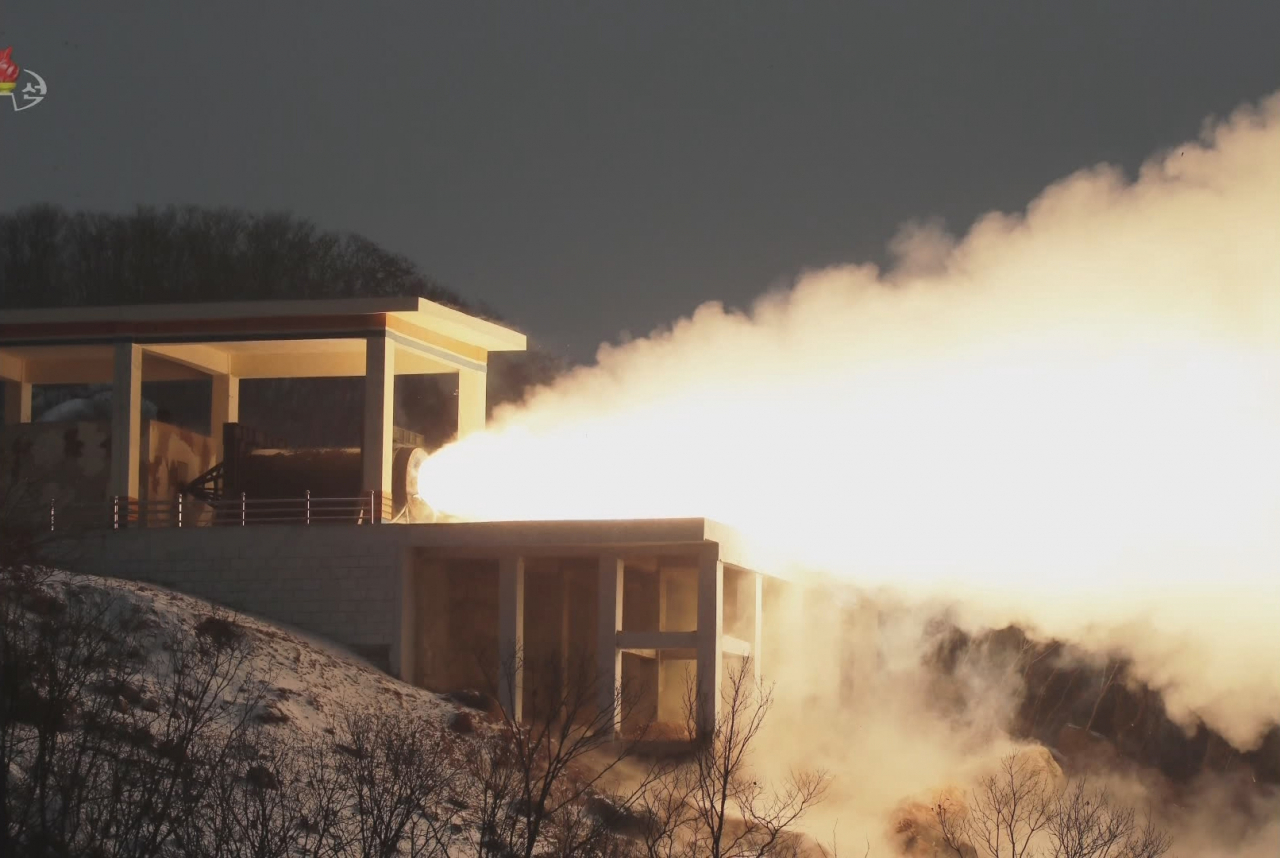N. Korea tests enhanced engine amid push to improve missiles
By Choi Si-youngPublished : Dec. 16, 2022 - 17:28

North Korea tested what it called a high-thrust solid-fuel engine Thursday -- the latest move by the isolated country to ramp up its campaign to build better missiles and nuclear weapons while rejecting all efforts for peace deals.
The test, made public Friday by the state-run Korea Central News Agency, was overseen by leader Kim Jong-un, who KCNA said “encouraged missile researchers for another new weapon.” The test took place at the country’s Sohae Satellite Launching Ground, the site used to evaluate Pyongyang’s missile technologies.
The latest launch comes as North Korea seeks to improve its weapons, especially its intercontinental ballistic missiles, which the North tested last month for the first time since 2017. The solid-fuel engine tested Thursday would make Pyongyang’s ICBMs quicker to launch and easier to conceal than the liquid one, according to experts, who stressed such missiles could be combat ready much earlier than South Korea expects.
“Thursday’s test is worrisome in that North Koreans are really making weapons they said they would. … We can no longer dismiss their missile threat as bravado; their missiles could now fly way past the US,” said Kim Dong-yub, a professor at the University of North Korean studies in Seoul, referring to the 2017 test that showed North Korea could attack any part of the US.
Kim Jong-un, who last year vowed to develop the solid-fuel engine at a key party meeting he chaired, said he expected to see “another new strategic weapon” -- a warning professor Kim says leader Kim will follow through on as he has just done this time.
Chang Young-keun, a missile specialist at Korea Aerospace University, said the latest development meant South Korea and the US would need much better intelligence to thwart North Korea’s missile attacks in advance, a more daunting task for Washington than Seoul as South Korea still heavily relies on US spy satellites.
Meanwhile, nuclear envoys from South Korea, the US and Japan said this week they solidified their commitment to working on a “completely nuclear-free North Korea” at their meeting in Jakarta, Indonesia. The gathering, held regularly since June this year, is the latest highlight of the three-way coalition, which has led the international campaign to curb North Korea’s nuclear ambitions.
On Thursday, the presidential office released a statement, saying that President Yoon Suk-yeol and the UN’s nuclear watchdog chief Rafael Grossi agreed to expand cooperation on addressing North Korea’s nuclear threat at their talks, which was held during Grossi’s three-day trip to Seoul that started Wednesday. Grossi, director general of the International Atomic Energy Agency, said he would make an all-out effort to rein in Pyongyang’s nuclear weapons program.


















![[KH Explains] Hyundai's full hybrid edge to pay off amid slow transition to pure EVs](http://res.heraldm.com/phpwas/restmb_idxmake.php?idx=652&simg=/content/image/2024/04/18/20240418050645_0.jpg&u=20240418181020)

![[Today’s K-pop] Zico drops snippet of collaboration with Jennie](http://res.heraldm.com/phpwas/restmb_idxmake.php?idx=642&simg=/content/image/2024/04/18/20240418050702_0.jpg&u=)